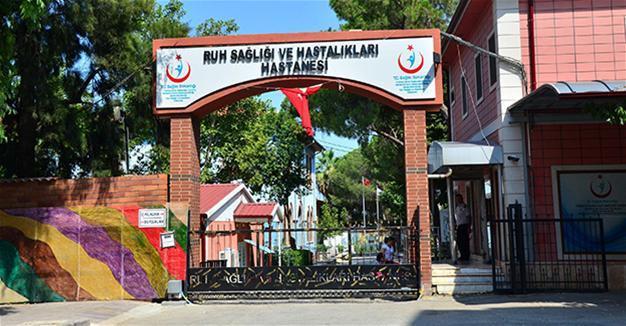6,000 addicts applied to treatment center in Turkey’s Manisa in first five months of 2017
MANİSA
 A total of 6,000 addicts have applied to the Alcohol and Drug Addiction Treatment Center (AMATEM) in the Aegean province of Manisa in the first five months of this year, whereas the figure was only 2,348 for the year of 2010, the center’s head doctor, Aslıhan Eslek, told daily Cumhuriyet on Aug. 13.
A total of 6,000 addicts have applied to the Alcohol and Drug Addiction Treatment Center (AMATEM) in the Aegean province of Manisa in the first five months of this year, whereas the figure was only 2,348 for the year of 2010, the center’s head doctor, Aslıhan Eslek, told daily Cumhuriyet on Aug. 13.Eslek said although the center was prioritizing rehabilitating drug addicts, it was also providing treatment for many other addictions such as alcohol, gambling, cigarettes, internet, and social media.
She said their service was not limited to Manisa but instead covered the whole Aegean region, as many patients from all around the region were visiting the center. Of these people, currently 800 of them are receiving inpatient treatment.
Although in the past it was mostly children of lower socio-economic backgrounds, or those who have divorced parents, or individuals with lesser education that were most inclined to addiction, currently, addiction is seen among people who received high and better education and are financially well off, according to Aslıhan.
“The number of applications exceeds the number of our beds. Because of this we work with appointments. The number of addicts increased. A lot more AMATEMs have been opened [across Turkey], but the number of the appointments on our lists have not decreased. In the clinic, we see at most plural-substance abuse cases. Users of synthetic cannabinoid do not use this substance on its own. They also use volatile substance, hashish, alcohol, and methamphetamine,” Aslıhan said.
She also touched upon virtual relations, saying that such relations created an inclination for individuals to be addicts. “Instead of real relations, relations from the virtual world and phones have started to be established. And this has a disadvantage. They are as nutritive as real relations. Such modes of living have changed a lot of influence on addiction. The result that we see in addiction fundamentally is the loss of social relation. That one has more virtual relations makes them more inclined to addiction,” she said.
Aslıhan also noted that the number of women applying to their center increased. “Women in the past were held back, there were prejudices. Since these prejudices have started going away, the number of women applying increased,” she said.
















